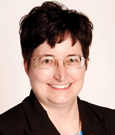One of the key questions in geriatric oncology is: How can we use all of the work geriatricians have done over the years in general geriatrics and apply that to the field of oncology? One-quarter to one-third of us are going to develop cancer throughout our lifetime, and half of the time it is going to be after the age of 70. So, many but not all of us will have other health problems by the time we have a cancer, and you can have some very healthy older persons. As cancer physicians, we give treatments that are pretty aggressive sometimes, so you have to know which person can have that treatment and get the full benefit of it and which person cannot have the treatment.
To give full disclosure, I am a Past President of SIOG. We have been doing taskforce work in order to review the evidence and see what is the best way to evaluate these cancer patients with geriatric instruments. We advocate a two-step approach. Oncologists are very busy people. Not everybody over 70 needs a whole assessment by a geriatrician, it can take a bit of time to have that assessment by a geriatrician, so we advocate first using a short screening tool and then referring the patient who screened positive for a full geriatric assessment.
Assessment Guidelines for Older Patients
When an oncologist is in a very busy private practice and sees a patient for the first time, it will often be a couple of weeks before actually starting the [patient’s] treatment, because you have to get the outside CT scan, and you have to get a port. So you have 2 weeks in which you can do further assessments, and a geriatrician can do a lot of things in 2 weeks.
In 2005, we published our first set of guidelines1 for older cancer patients including the geriatric assessment, and this year we are presenting an update of those guidelines at the SIOG conference. [The update includes] which screening tool has published information and which one seems to be sensitive enough so we don’t miss too many problems and will be good enough to build a proper reference for a geriatrician or a multidisciplinary team that can see everybody.
Then some other elements of this taskforce look at the geriatric assessment. [For example,] what do we detect in this cancer patient? How many problems [does the patient have], and do those problems change the cancer treatment? Many studies have shown that a geriatric consultation or a multidisciplinary interaction with a geriatrician does modify the cancer treatment about 25% to 50% of the time.
So when physicians have new information from the geriatric side, they are going to change the treatment quite a few times. The data are still fairly scarce, [but] as we change the treatment, does it change the outcome? Does it change how the patient functions? Does it change how an older patient lives? Does it change the ability of cancer patients to finish their treatment?
Not Ready for Prime Time
We know a geriatric assessment predicts all of that very well and differently from all of your classic prognostic cancer factors, but we don’t yet know if we can change that with a geriatric intervention. My thought is, are we ready for prime time? And my answer would be, “Well maybe [we’re ready for] the mid-morning or the late evening, but we’re not quite ready for prime time.” Because screening is just good medicine—we know the authentic problems in a certain group of patients, and good medicine is being aware of what problems the patient has.
[So we know it is important to] take into account the assessment of the geriatrician, but in what form is open to discussion—we do not have studies showing which interventions change patient outcome. But there is work in progress.
Several studies of fairly large size are looking at the outcomes of treatment changes. A study in Belgium of 2,000 patients in 10 centers—both academic and private hospitals—showed that one-quarter have changes in treatment and they are now looking down the line at what is going to happen. The French also have a large trial [underway]. In the United States, I’m not aware of any multicenter trial on that particular aspect, but there are probably several geriatric oncology programs that are trying to [address these questions]. ■
Disclosure: Dr. Extermann is a past President of the International Society for Geriatric Oncology.
Martine Extermann, MD, PhD, is Professor of Oncology and Medicine at the University of South Florida and Attending Physician in Senior Adult Oncology at the Moffitt Cancer Center in Tampa, Florida.
Reference
1. Extermann M, Aapro M, Bernabei R, et al: Use of comprehensive geriatric assessment in older patients: Recommendations from the task force on CGA of the International Society of Geriatric Oncology (SIOG). Crit Rev Oncol Hematol 55:241-252, 2005.
Adapted with permission from an interview conducted by eCancer Conferences at the 2013 International Society of Geriatric Oncology conference in October. To view the full interview and others, visit ecancer at http://www.ecancer.org.
ecancer is an online oncology channel supported by the ECMS Foundation (ecancermedicalscience). The Foundation was established by Professor Umberto Veronesi and Professor Gordon McVie as an independent, not-for-profit organisation with charitable status to fund the speedy dissemination of cancer information. ecancer is Published by Cancer Intelligence Ltd, England and Wales.


